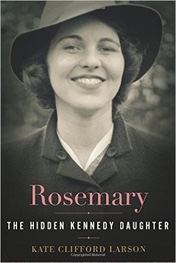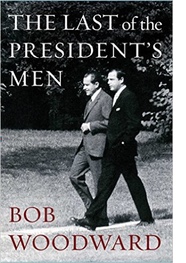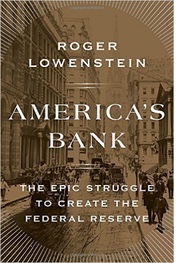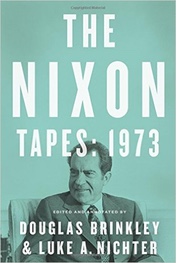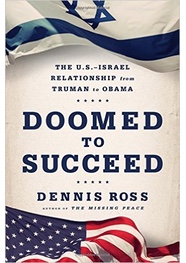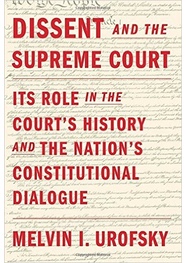NYT History Book Reviews: Who Got Noticed this Week?
Book: Rosemary: The Hidden Kennedy Daughter
Summary (Via Amazon): "Joe and Rose Kennedy’s strikingly beautiful daughter Rosemary attended exclusive schools, was presented as a debutante to the Queen of England, and traveled the world with her high-spirited sisters. And yet, Rosemary was intellectually disabled — a secret fiercely guarded by her powerful and glamorous family. Major new sources — Rose Kennedy’s diaries and correspondence, school and doctors' letters, and exclusive family interviews — bring Rosemary alive as a girl adored but left far behind by her competitive siblings. Kate Larson reveals both the sensitive care Rose and Joe gave to Rosemary and then — as the family’s standing reached an apex — the often desperate and duplicitous arrangements the Kennedys made to keep her away from home as she became increasingly intractable in her early twenties. Finally, Larson illuminates Joe’s decision to have Rosemary lobotomized at age twenty-three, and the family's complicity in keeping the secret."
Author: Kate Clifford Larson is a historian, author, and consultant.
Reviewer: Meryl Gordon, director of magazine writing at the Arthur L. Carter Journalism Institute, is the author of “Mrs. Astor Regrets: The Hidden Betrayals of a Family Beyond Reproach.”
Reviewer highlights
"...a biography that chronicles her life with fresh details...
"The first biographer to have access to all of Rosemary’s known letters, replete with typos and lopsided sentence structure, Larson deploys excerpts in heart-rending fashion, showing a sweet, insecure girl who was desperate to please.
"...she has amplified this well-told tale with newly released material from the John F. Kennedy Library and a few interviews. By making Rosemary the central character, she has produced a valuable account of a mental health tragedy, and an influential family’s belated efforts to make amends."
Erik Moshe Comment: Larson noted that her research for Rosemary "makes clear that Rosemary, the eldest Kennedy daughter, read at a third- to fourth-grade level. Her letters—some disclosed for the first time—reveal her struggles and joys with school work, friends, and family. But her lack of advancement as she grew older, and her preference for social activities, frustrated her parents. I could see from their correspondence that they pushed her too hard, and their constant demands for improvement from a child with intellectual disabilities felt insensitive and sometimes even cruel to me. Rosemary’s letters are heartbreaking testimony to her intense loneliness at boarding school—starting when she was only eleven years old—and her rising anxiety over standards she could never meet."
Book: The Last of the President’s Men
Summary (Via Amazon): "Bob Woodward exposes one of the final pieces of the Richard Nixon puzzle in his new book The Last of the President’s Men. Woodward reveals the untold story of Alexander Butterfield, the Nixon aide who disclosed the secret White House taping system that changed history and led to Nixon’s resignation. In forty-six hours of interviews with Butterfield, supported by thousands of documents, many of them original and not in the presidential archives and libraries, Woodward has uncovered new dimensions of Nixon’s secrets, obsessions and deceptions."
Author: Bob Woodward is an investigative journalist and best-selling author.
Reviewer: Michiko Kakutani
Reviewer highlights
"...slight but readable new book...
"The Last of the President’s Men very much ratifies a verdict Mr. Woodward voiced a year ago, writing about a book by John W. Dean, Nixon’s White House counsel, that analyzed newly revealed tapes: Those tapes, Mr. Woodward wrote, 'depict a White House full of lies, chaos, distrust, speculation, self-protection, maneuver and counter-maneuver, with a crookedness that makes Netflix’s ‘House of Cards’ look unsophisticated.'”
Erik Moshe Comment: Woodward's book about the Watergate scandal, All the President's Men, became a No. 1 bestseller and was later turned into a movie. The 1976 film, starring Robert Redford as Woodward and Dustin Hoffman as Bernstein, transformed the reporters into celebrities and inspired a wave of interest in investigative journalism.
Additionally, back in 2004, Mark Feldstein wrote an article for HNN titled "The Myth of the Media's Role in Watergate" which may be of interest. Feints within feints within feints...
Book: America’s Bank: The Epic Struggle to Create the Federal Reserve
Summary (Via Amazon): "For nearly a century, America, alone among developed nations, refused to consider any central or organizing agency in its financial system. Americans’ mistrust of big government and of big banks—a legacy of the country’s Jeffersonian, small-government traditions—was so widespread that modernizing reform was deemed impossible. Each bank was left to stand on its own, with no central reserve or lender of last resort. The real-world consequences of this chaotic and provincial system were frequent financial panics, bank runs, money shortages, and depressions. By the first decade of the twentieth century, it had become plain that the outmoded banking system was ill equipped to finance America’s burgeoning industry. But political will for reform was lacking. It took an economic meltdown, a high-level tour of Europe, and—improbably—a conspiratorial effort by vilified captains of Wall Street to overcome popular resistance. Finally, in 1913, Congress conceived a federalist and quintessentially American solution to the conflict that had divided bankers, farmers, populists, and ordinary Americans, and enacted the landmark Federal Reserve Act.”
Author: Roger Lowenstein
Reviewer: Robert E. Rubin, a co-chairman of the Council on Foreign Relations, was Treasury secretary from 1995 to 1999.
Reviewer highlights
"It should be required reading for anyone who is engaged in, or interested in, the actions of the modern Fed, and the continuing debates about those actions and about its governance.
"...thanks to Lowenstein, the largely untold story of the great financial debates of the 19th and early 20th centuries, together with the creation of our Federal Reserve System, can now take their rightful place in the history of American democracy and the evolution of the United States into a global financial power.
Erik Moshe Comment: This Halloween, I'm going to dress up as the Creature from Jekyll Island. Can I borrow Alan Greenspan's glasses, please?
Book: The Nixon Tapes: 1973
Summary (Via Amazon): "When The Nixon Tapes: 1971–1972 was published in August of 2014, it jumped immediately onto the New York Times bestseller list and captivated media attention for its many revelations. Douglas Brinkley and Luke Nichter’s heroic efforts to transcribe and annotate the highlights of more than 3,700 hours of recorded conversations provided an unprecedented and fascinating window into the inner workings of a momentous presidency. Now, with a concluding volume to cover the final year of the Nixon taping system, Brinkley and Nichter tell the rest of the story — once again with revelations on every page..."
Authors: Luke A. Nichter is an Associate Professor of History at Texas A&M University - Central Texas, and a noted expert on the Nixon tapes. Luke is also the co-author, with Douglas Brinkley, of the New York Times bestseller, The Nixon Tapes: 1971-1972, as well as this book.
Reviewer: Max Frankel, a former executive editor of The Times, was Washington bureau chief during Richard Nixon’s first term as president. He also won the Pulitzer Prize in 1973 for coverage of Richard Nixon's trip to the People's Republic of China.
Reviewer highlights
"Of the total 3,700 hours of recordings, the last several hundred were made in 1973, until the taping system was disclosed in July, sealing the president’s fate. The last batch was released by the National Archives in 2013, leaving an unnumbered remnant of tapes still classified to protect privacy or security. Of the most recently released group, a revealing selection is now presented in transcript by Douglas Brinkley and Luke A. Nichter, two masochistic historians (at Rice University and Texas A&M), who had previously suffered through the mind-numbing palaver and thousands of ‘unclear’ passages, lost antecedents and crisscrossing interruptions in the tapes of 1971 and 1972.
"The guidance that the editors of this enormous volume offer to introduce the conversations is stingy. Their book is helpful mostly to those of us already familiar with the Nixon headlines from four decades ago. And the editors are annoyingly vague about the total number of tapes and hours from which these selections were drawn."
Erik Moshe Comment: LBJ Thought Nixon Committed Treason to Win the 1968 Election. Nixon is everywhere lately.
Book: Doomed to Succeed: The U.S.-Israel Relationship From Truman to Obama
Summary (Via Amazon): "When it comes to Israel, U.S. policy has always emphasized the unbreakable bond between the two countries and our ironclad commitment to Israel's security. Today our ties to Israel are close―so close that when there are differences, they tend to make the news. But it was not always this way. Dennis Ross has been a direct participant in shaping U.S. policy toward the Middle East, and Israel specifically, for nearly thirty years. He served in senior roles, including as Bill Clinton's envoy for Arab-Israeli peace, and was an active player in the debates over how Israel fit into the region and what should guide our policies. In Doomed to Succeed, he takes us through every administration from Truman to Obama, throwing into dramatic relief each president's attitudes toward Israel and the region, the often tumultuous debates between key advisers, and the events that drove the policies and at times led to a shift in approach. Ross points out how rarely lessons were learned and how distancing the United States from Israel in the Eisenhower, Nixon, Bush, and Obama administrations never yielded any benefits and why that lesson has never been learned."
Author: Dennis Ross
Reviewer: Scott Anderson is the author, most recently, of “Lawrence in Arabia: War, Deceit, Imperial Folly and the Making of the Modern Middle East” which was reviewed on HNN back in 2013.
Reviewer highlights
"Ross, who served most notably as President Clinton’s special envoy to the Middle East, has produced a work that is simultaneously comprehensive, quite fair-minded and somewhat ponderous. As the subtitle suggests, this is not a history of Arab-Israeli peace efforts per se, but rather of the evolution of Israeli-American diplomatic relations — except these two matters are so inextricably linked as to pose an almost semantic difference.
"...while the detailed ins and outs of the work that went into organizing this multilateral summit conference or that Memorandum of Agreement might be of interest to the Middle Eastern specialist, the lay reader is likely to feel a bit numbed. Then again, the specialist may be Ross’s intended audience, considering that much of the book’s accumulation of detail is directed at buttressing his two main thesis points."
Erik Moshe Comment: Israeli hummus cafe gives Jewish-Arab tables half off. There's no way I'm not taking my friend Abu there for a chicken shawarma pita!
Summary (Via Amazon): "Urofsky’s major new book looks at the role of dissent in the Supreme Court and the meaning of the Constitution through the greatest and longest lasting public-policy debate in the country’s history, among members of the Supreme Court, between the Court and the other branches of government, and between the Court and the people of the United States.
"Urofsky writes of the necessity of constitutional dialogue as one of the ways in which we as a people reinvent and reinvigorate our democratic society. In Dissent and the Supreme Court, he explores the great dissents throughout the Court’s 225-year history. He discusses in detail the role the Supreme Court has played in helping to define what the Constitution means, how the Court’s majority opinions have not always been right, and how the dissenters, by positing alternative interpretations, have initiated a critical dialogue about what a particular decision should mean. This dialogue is sometimes resolved quickly; other times it may take decades before the Court adjusts its position. Louis Brandeis’s dissenting opinion about wiretapping became the position of the Court four decades after it was written. The Court took six decades to adopt the dissenting opinion of the first Justice John Harlan in Plessy v. Ferguson (1896)—that segregation on the basis of race violated the Constitution—in Brown v. Board of Education (1954).
"Urofsky writes of the rise of conservatism and discusses how the resulting appointments of more conservative jurists to the bench put the last of the Warren liberals—William Brennan and Thurgood Marshall—in increasingly beleaguered positions, and in the minority. He discusses the present age of incivility, in which reasoned dialogue seems less and less possible. Yet within the Marble Palace, the members of the Supreme Court continue to hear arguments, vote, and draft majority opinions, while the minority continues to 'respectfully dissent.' The Framers understood that if a constitution doesn’t grow and adapt, it atrophies and dies, and if it does, so does the democratic society it has supported. Dissent—on the Court and off, Urofsky argues—has been a crucial ingredient in keeping the Constitution alive and must continue to be so."
Author: Melvin I. Urofsky is a historian who said that his definitive biography of former Supreme Court Justice Louis D. Brandeis is the product of 45 years of work.
Reviewer: Dahlia Lithwick is the Supreme Court correspondent for Slate.
Reviewer highlights
"The legal historian Melvin I. Urofsky’s ambitious new look at the role of dissents throughout our constitutional history offers some useful tools...
"According to his central thesis, a dissent can become important, can indeed shape the future, when it becomes part of the larger 'constitutional dialogue.' Urofsky’s concern here is for the 'canonical or prophetic' dissents that go on to shape the future deliberations of the justices, their successors and the American public.
"Urofsky’s extraordinarily careful analysis and sense of historical depth make Dissent and the Supreme Court an important book, one that explores some of the most significant dissents in the history of that institution.
"Urofsky is riveting when detailing the arguments and rhetorical workings of the nation’s great dissenters, from John Marshall Harlan to Louis Brandeis to William O. Douglas. “
Erik Moshe Comment: 19 Hysterical Passages From Supreme Court Same-Sex Marriage Dissenters
For Fun: 9 Senior White House Staffers Injured In Collapse Of Overcrowded Truman Balcony
